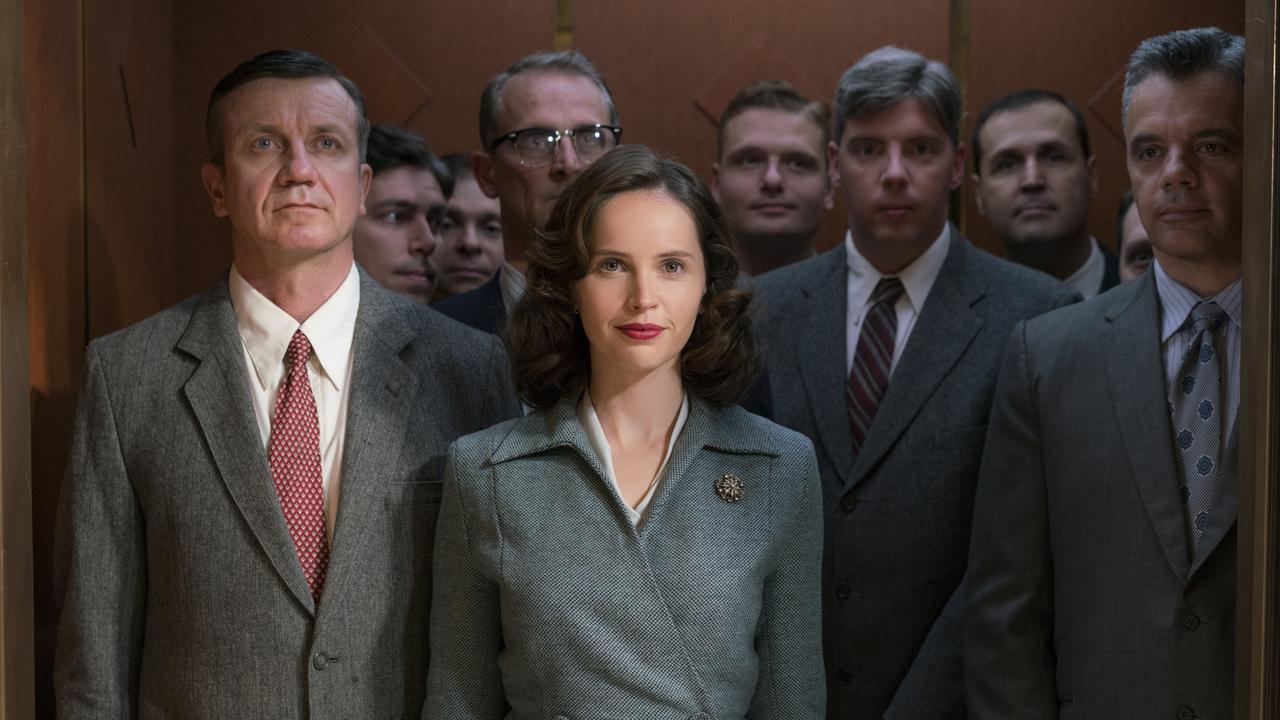‘Enjoyable enough’ On the Basis of Sex leans too much on schmaltz
A feel-good new movie tells a brilliant story about an incredible person. But it’s not all it should be.
Ruth Bader Ginsburg is an extraordinary woman.
To become only the second woman to sit on the US Supreme Court after battling for equal rights for women under the American law is a brilliant achievement.
Also, she’s some kind of super genius who must have a time machine because there is no way she can humanly fit in as much work as she does.
But you don’t necessarily get that full story from On the Basis of Sex, a new biopic of Ginsburg starring Felicity Jones, Armie Hammer, Justin Theroux and Kathy Bates, and directed by Mimi Leder.
It’s a matter of timing, with On the Basis of Sex on the heels of RBG , an insightful Ginsburg documentary that came out only months ago. Compared to that, this effort gives you a shallower, Hollywood-ified portrait of a complex woman’s life.
Not that it’s without its merits.
The movie starts on Ruth’s (Jones) first day at Harvard Law School in 1956, under Erwin Griswold (Sam Waterston), the Dean of Law who spent a decade trying to keep female students out.
In her blue jacket and heels, she’s the lone woman in a sea of men in suits, almost bobbing excitedly through Harvard’s hallowed halls. Inside the lecture theatre, she spies a small smattering of other female faces — there are nine of them in total, and they’re told they robbed nine men of their rightful places at Harvard.
It’s not the first indignity, and it won’t be the last.

Ruth’s superwoman powers are soon called upon when she has to not just balance her own demanding workload with raising her toddler daughter but also take her husband Marty’s (Hammer) second-year classes when he’s struck down with illness.
When she graduates the top of her class, no law firm in New York will hire her — the excuses range from “jealous wives wouldn’t want a woman working with their husbands” to “we hired a woman last year and what would we want with two”?
After taking a teaching position at Rutgers, On the Basis of Sex fast-forwards to 1970.
Buoyed by the (qualified) successes of the civil rights movement for African-Americans, Ruth sees an opportunity in a tax case in which an unmarried man is penalised for claiming a deduction for his mother’s nursing care — sex discrimination under the law against a man.

The main thrust of the film is this case, in which everyone except Marty underestimates Ruth’s prospects in the face of three male judges, her own inexperience in a courtroom and government foes on the opposing side, including her former Harvard teachers.
There’s also a subplot involving Ruth trying to relate to her teenage daughter Jane and that younger generation’s direct action tactics to demanding equal rights.
It’s here you get a better sense, albeit nothing approaching completeness, of who Ruth is beyond her legal career, which RBG had a much better grasp on — of the woman with a mighty intellect who’s also a bad cook, who doesn’t like small talk but loves opera.
On the Basis of Sex is a great story because Ruth Bader Ginsburg has a great story. But it’s not a great film, merely a good one that leans too heavily on schmaltz.
It’s enjoyable enough, but Ruth Bader Ginsburg deserves a bit more than that.
Rating: ★★★
On the Basis of Sex is in cinemas from today.
Share your movies and TV obsessions: @wenleima




